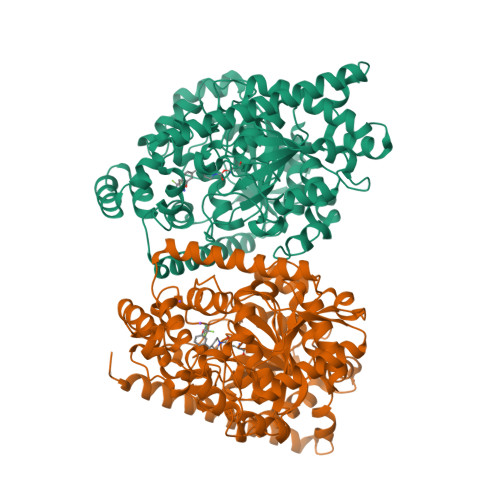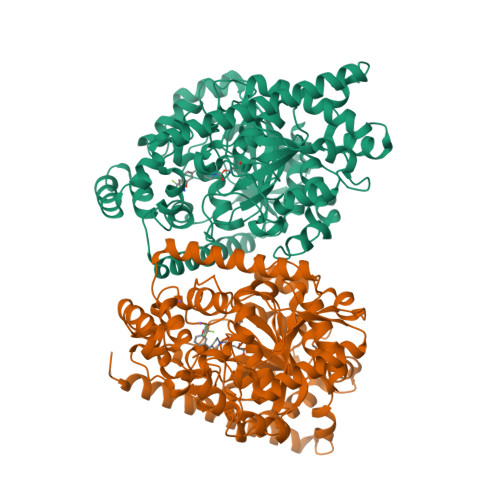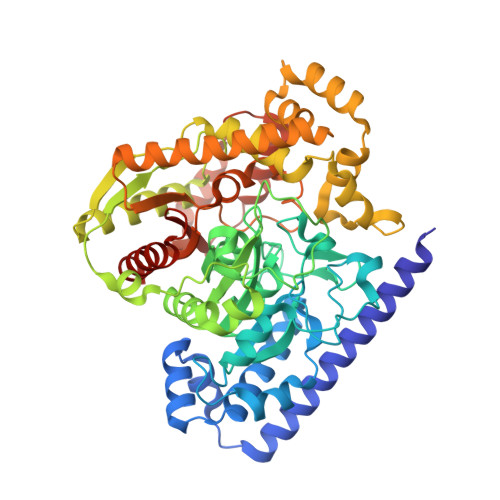Discovery and Characterization of a Highly Selective Faah Inhibitor that Reduces Inflammatory Pain.
Ahn, K., Johnson, D.S., Mileni, M., Beidler, D., Long, J.Z., Mckinney, M.K., Weerapana, E., Sadagopan, N., Liimatta, M., Smith, S.E., Lazerwith, S., Stiff, C., Kamtekar, S., Bhattacharya, K., Zhang, Y., Swaney, S., Vanbecelaere, K., Stevens, R.C., Cravatt, B.F.(2009) Chem Biol 16: 411
- PubMed: 19389627
- DOI: https://doi.org/10.1016/j.chembiol.2009.02.013
- Primary Citation of Related Structures:
2WAP - PubMed Abstract:
Endocannabinoids are lipid signaling molecules that regulate a wide range of mammalian behaviors, including pain, inflammation, and cognitive/emotional state. The endocannabinoid anandamide is principally degraded by the integral membrane enzyme fatty acid amide hydrolase (FAAH), and there is currently much interest in developing FAAH inhibitors to augment endocannabinoid signaling in vivo. Here, we report the discovery and detailed characterization of a highly efficacious and selective FAAH inhibitor, PF-3845. Mechanistic and structural studies confirm that PF-3845 is a covalent inhibitor that carbamylates FAAH's serine nucleophile. PF-3845 selectively inhibits FAAH in vivo, as determined by activity-based protein profiling; raises brain anandamide levels for up to 24 hr; and produces significant cannabinoid receptor-dependent reductions in inflammatory pain. These data thus designate PF-3845 as a valuable pharmacological tool for in vivo characterization of the endocannabinoid system.
Organizational Affiliation:
Pfizer Global Research and Development, Groton, CT 06340, USA. kay.ahn@pfizer.com




















